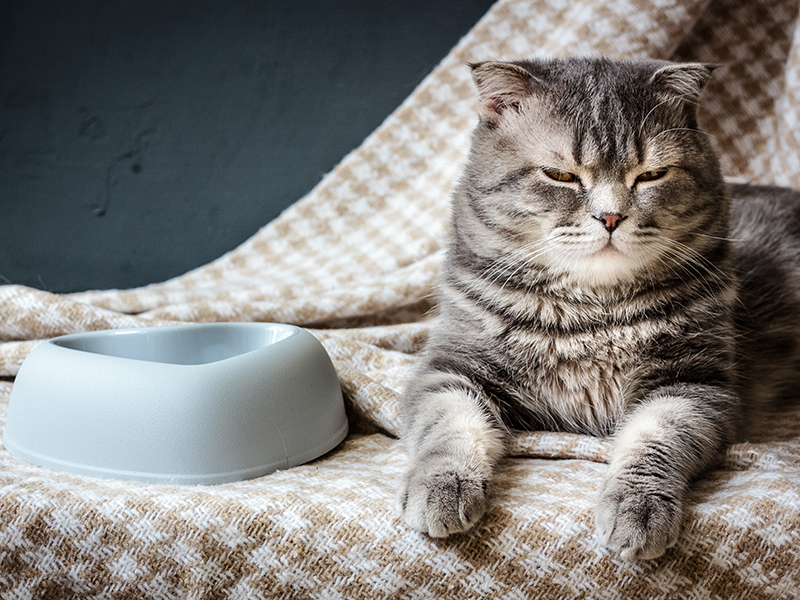Is It Okay to Skip Feeding Your Cat for a Day
How Long Can a Cat Go Without Eating?
Cats would like to have their human caretakers believe they can do virtually anything. They pretend to be independent but when it comes right down to it, they need us as much as we need them. Cats are their parents' perpetual babies and as a feline mom or dad, most people would do everything they could to keep their feline friend's comfortable and well-fed.
Unfortunately, sometimes things happen that are out of our control. Whether your fur baby is sick or has a psychological issue going on, sometimes they won't eat. Of course, this freaks out cat parents and it should. After a while of not eating, you might start to wonder how long can a cat go without eating?
Cats Usually Eat Often
Cats can eat up to ten small meals per day, depending on their size and calorie requirements. Kittens tend to eat more than adult cats but elderly cats, that are seven years or older, eat the least. Nevertheless, your cat should eat at least once or twice per day. If your cat enjoys smaller meals and you like to feed them at specific times, they could eat up to five times.
Regardless of whether your cat is a grazer or a regimented meal-time cat, your feline companion loves to eat, it is likely one of the best times of their day! So, if they are not eating, for more than twelve hours, there is a problem.
Skipping Meals is Different for Cats
Skipping meals for cats is different from skipping meals for humans (or dogs). It is a lot more dangerous for cats to skip meals because their bodies are not built to store energy. Cats need a regular supply of protein to survive or their organs will start to shut down. Even a healthy cat who is hydrated can succumb to organ failure due to malnutrition in just three or four days.
In comparison, a healthy human being can live up to two months without food, as long as they are hydrated.
Reasons Why Your Cat Isn't Eating
Of course, cats don't mean to starve themselves. However there are many different reasons why your cat may not be eating. Some of these reasons are physical, and some of them can be psychological. However, none of these reasons are the fault or intention of you or your cat.
Here are some of the most common reasons your cat isn't eating:
Yet, most pet parents are clean. They have a clean and sanitary house, so why would their cat think their environment is dirty? There are two major reasons:
-
Your cat's food bowl is too close to their litter box.
-
Your cat's food bowl is not clean. (This can be a problem especially if you feed your cat wet food.)
How to Get Your Cat to Eat
Considering there are many reasons your cat is going without eating, there are also a good number of methods that cat parents can do to entice their fur babies to eat. Here are some of the easiest methods to get your cat to eat:
Ultimately, if your cat goes more than 24 hours without eating anything, call the veterinarian and get your furry friend looked at. Mentally and physically healthy cats are not going to starve themselves. So, if your cat is not eating for a prolonged period of time it is important to get to the root of the issue as quickly as possible.
Source: https://thedailycat.com/how-long-can-a-cat-go-without-eating#:~:text=It%20is%20a%20lot%20more,just%20three%20or%20four%20days.

